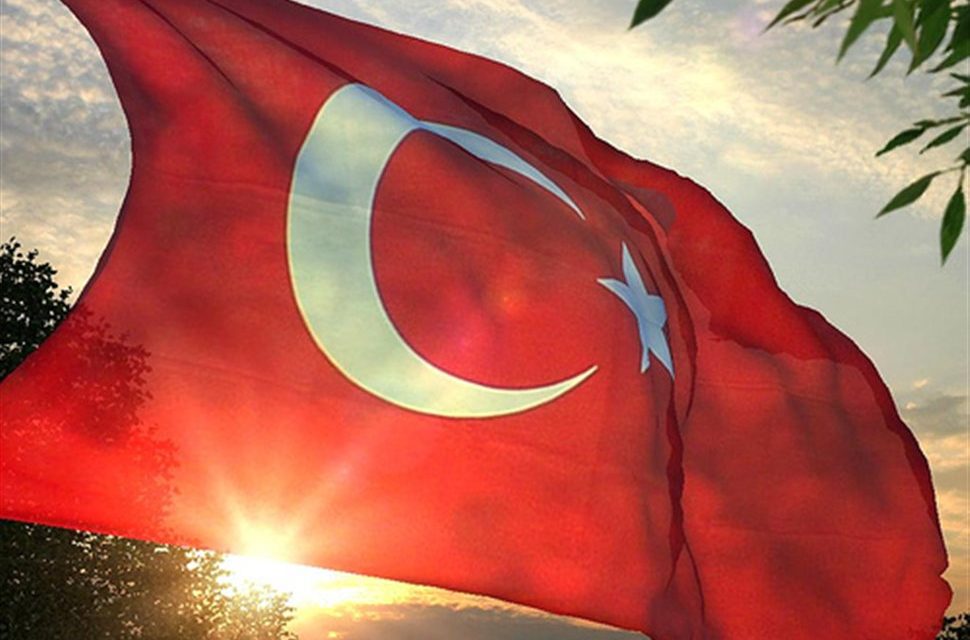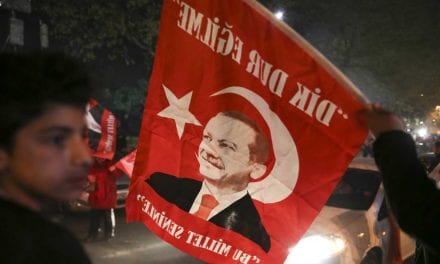On Sunday 30 March, Turkish Prime Minister Recep Tayyip Erdogan and his AK Party celebrated a major victory. Erdogan surfaced as the unchallenged winner of the local elections, despite the fact his entire campaign had been overshadowed by allegations of corruption and undemocratic behaviour.
Under normal circumstances, the victory of the AKP would signal stability. These, however, are not normal circumstances and the victory did not signal stability.
Nevertheless, the allegations of corruption within Erdogan’s government and especially his entourage and even his own family were not adequately addressed. The manner in which Erdogan reacted to these allegations is uncharacteristic of a democratic society and suggests an un-free regime.
The attacks against the opposition, independent journalists and the media and against the movement of Feithoulah Gullen, who Erdogan considers his mortal rival, are beyond any acceptable limits in a democratic country.
With his decision to take on these rivals by using all means within his power, Erdogan is following a very dangerous path as regards the internal affairs of his country.
If Erdogan decides to run in the next Presidential Elections in August, it will be a sign that he is eager to strengthen his power and to move Turkey towards a Presidential regime.
The fact that the current president, Abdullah Gul, is his ally and that he too wants to seek another term in office, suggests Erdogan is willing to sacrifice his allies and friends in order to achieve his targets.
It is also true that Erdogan has been drawing popular support in two ways.
One is from Turkey’s opposition, which is too weak and cannot convince voters that it can form a viable alternative. This is evidenced in the result of last Sunday’s local election.
The other is by using the economy. Erdogan repeatedly boasts Turkey’s economy is one of the fastest growing in the world and that it is thanks to his leadership that the country has become an important power in the region. Of course there are many in the opposition who insist that it’s money from the International Monetary Fund (IMF) that has made the Turkish economy appear to be healthy. Erdogan is not describing the real situation, according to the critics.
The question now is whether these two issues are enough to keep Erdogan reassured that his government is stable.
Another factor one has to consider is Syria. Talk about Turkey’s possible military intervention in Syria emerged just a few days ahead of the local elections. While this might be a “good idea” to coil Turkish society around Erdogan, it also represents a great danger for the region.
Up to now, Erdogan’s actions have suggested he is not interested in the European Union’s views and concerns.
Why? Because Turkish public opinion is either against, or no longer interested in, Turkey’s EU prospects. This was shown in the latest opinion polls.
Is the EU responsible for this turn-around? Of course it is.
Turkey’s hope that one day it will become a full member has been building up for decades. There were moments when this “dream” seemed within reach, but after a short-lived euphoria some European leaders swept to shut the door and block the procedure.
Turkey’s relations with the EU are characterised by a series of starts and stops. This has frustrated the Turks, who feel betrayed, according to the findings of public opinion polls. They know that many European countries do not consider Turkey as a part of Europe and do not want the Turks among them.
Turks have grown tired and enraged of having to wait so long for the EU to green-light their country’s entry. This is one reason the Turks are so receptive to Erdogan’s speeches about Turkey’s power and grandeur.
But isn’t it important for the EU not to lose Turkey?
It’s important for many reasons, from the geopolitical ones to the economic. Turkey must continue to be a close partner of the EU. But without an EU perspective, Turkey might transform into an authoritarian regime. The country could become isolated and there is also the possibility that it could partner with anti-Western nations and movements. The huge Turkish market could be lost to the EU as well. The stability across the entire region, from the Balkans to Caucasus and to Middle East, could be also threatened. Losing Turkey is a luxury the EU cannot afford to lose.
This means EU leaders need to figure out a new way to re-approach Turkey and to win back the trust of the Turks.
neurope.eu



















